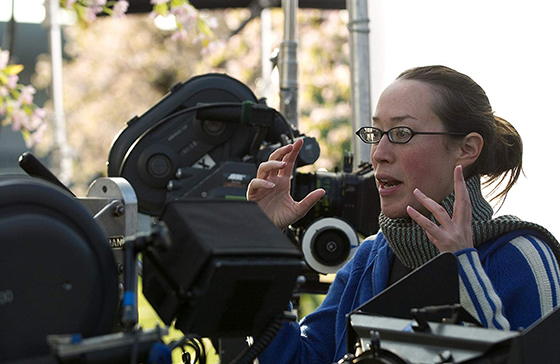Guilt, Rage, and Love – Examining Kusama’s DESTROYER and Denis’ HIGH LIFE
Both HIGH LIFE and DESTROYER utilize flashbacks as a mechanism for the protagonist to process past trauma, and moments of almost disarming tenderness to punctuate brutality—a jarring but effective vacillation.

Historically, the depiction of female emotion on film has been constrained by how palatable it is for the male gaze. Women can laugh, but not at the expense of their poise; they can feel anger, but not if it contorts their face into something unappealing; they can experience sadness, but not before first offering emotional comfort to a man in their orbit.
After viewing both Claire Denis’ HIGH LIFE and Karyn Kusama’s DESTROYER at the Toronto International Film Festival, I was immediately struck by their similar themes: exploration of the most base and atavistic human emotions, including parental love. Although Denis’ film is distilled into the claustrophobic, hot-box environment of a spacecraft, and Kusama’s is condensed like a black kernel inside the heart of one woman, the skill both directors exhibit in their ability to withhold and release emotional tension is unique.
Navigating a patriarchal world requires a perilous balance of outer calm warring with the inherent resentment in such an arbitrary societal constraint. Our inner lives are complex and tumultuous, lurking underneath a placid exterior.
Both HIGH LIFE and DESTROYER utilize flashbacks as a mechanism for the protagonist to process past trauma, and moments of almost disarming tenderness to punctuate brutality—a jarring but effective vacillation.
HIGH LIFE’s Monte (Robert Pattinson) is a man who polices his movements to hone control over his own mind and body (perhaps as self-flagellation for the violent crime he committed as a child). He keeps his face devoid of any emotion that may make him vulnerable to the machinations of his fellow inmates. He choses to remain chaste.
Raped while under sedation, he is robbed of that choice—a situation familiar to countless women. Denis flips the narrative and makes us examine what constitutes consent; conversely, the rape of the ship’s women is violent, but they are allowed to exact revenge. Monte is never permitted retribution against his rapist.
Instead, he pours every ounce of his love into nurturing the outcome of that violation—a baby girl. Marooned alone, in the vastness of space, each second has meaning because she is alive.
In DESTROYER, Erin Bell’s (Nicole Kidman) child is conceived by love, but everything that follows is marred by unfathomable tragedy. She ambles aimlessly through life like a ghost, back bowed by gnawing guilt and rage. Her daughter (Jade Pettyjohn) suffers unfairly for this, raised alone by her well-meaning stepfather (Scoot McNairy).
Erin’s opportunity to exact revenge becomes her sole purpose, consuming her; no cost is too high, even if it renders her child motherless. The prior seventeen years were lived in absentia so that she could be alive for one moment.
Kusama’s touch is visible in the fleeting moments of intimacy in which Erin indulges. The warmth is like an oasis in the desert; you want to soak it up, bask in it. You wish that she would allow herself a respite from her continuous, self-imposed agony. That particular breed of inward-turned punishment is familiar to women, and we ache for her.
HIGH LIFE and DESTROYER each end after journeying full-circle through draining emotional turmoil. Each benefits from a female perspective, even though the gender of the films’ respective protagonists differs. We hope that Monte and Erin have finally found peace; one director answers this question, while the other withholds it. As in life, trauma is processed differently by different people, a fact which Kusama and Denis are both acutely aware.